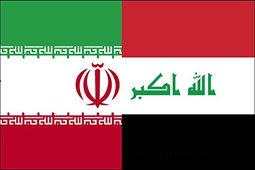
Washington Extends Iraq Exemption From Iran Sanctions


President Donald Trump reimposed sanctions on Iran's energy and finance sectors on November 5 following his May decision to abandon a landmark 2015 nuclear deal between major powers and Tehran.
But he gave Iraq a 45-day waiver to continue buying electricity and natural gas to generate it from its eastern neighbor, Middle East Online reported.
Iraq was expected to use that time to submit a plan on how it would wean itself off Iranian supplies.
In the days leading up to the deadline Thursday, Prime Minister Adel Abdel Mahdi said a delegation of Iraqi officials would travel to Washington to discuss sanctions.
And on Thursday, a government source involved in the talks, said the delegation had secured a 90-day extension so Iraq could keep buying both Iranian electricity and gas.
Asked whether the US had pressured the Iraqi delegation to partner with US companies to fill the eventual gap, the source said the issue was part of "complicated discussions".
Iraq faces a chronic power shortage that often leave homes without mains electricity for as much 20 hours a day and was a key driving factor behind mass protests this summer.
To cope with the shortages, Iraq pipes in up to 28 million cubic metres of Iranian gas a day for power generation and also directly imports up to 1,300 megawatts of Iranian electricity.
That dependence is uncomfortable for Washington, which sees Tehran as its top regional foe.
Last week, US Energy Secretary Rick Perry discussed sanctions with Iraq's ministers of oil and electricity in Baghdad, and said Iraq should partner with US companies to become energy independent.


Trump weighs using $2 billion in CHIPS Act funding for critical minerals

Codelco cuts 2025 copper forecast after El Teniente mine collapse

Electra converts debt, launches $30M raise to jumpstart stalled cobalt refinery

Barrick’s Reko Diq in line for $410M ADB backing

Abcourt readies Sleeping Giant mill to pour first gold since 2014

Nevada army depot to serve as base for first US strategic minerals stockpile

SQM boosts lithium supply plans as prices flick higher

Viridis unveils 200Mt initial reserve for Brazil rare earth project

Tailings could meet much of US critical mineral demand – study

Kyrgyzstan kicks off underground gold mining at Kumtor

Kyrgyzstan kicks off underground gold mining at Kumtor

KoBold Metals granted lithium exploration rights in Congo

Freeport Indonesia to wrap up Gresik plant repairs by early September

Energy Fuels soars on Vulcan Elements partnership

Northern Dynasty sticks to proposal in battle to lift Pebble mine veto

Giustra-backed mining firm teams up with informal miners in Colombia

Critical Metals signs agreement to supply rare earth to US government-funded facility

China extends rare earth controls to imported material

Galan Lithium proceeds with $13M financing for Argentina project

Kyrgyzstan kicks off underground gold mining at Kumtor

Freeport Indonesia to wrap up Gresik plant repairs by early September

Energy Fuels soars on Vulcan Elements partnership

Northern Dynasty sticks to proposal in battle to lift Pebble mine veto

Giustra-backed mining firm teams up with informal miners in Colombia

Critical Metals signs agreement to supply rare earth to US government-funded facility

China extends rare earth controls to imported material

Galan Lithium proceeds with $13M financing for Argentina project

Silver price touches $39 as market weighs rate cut outlook

















